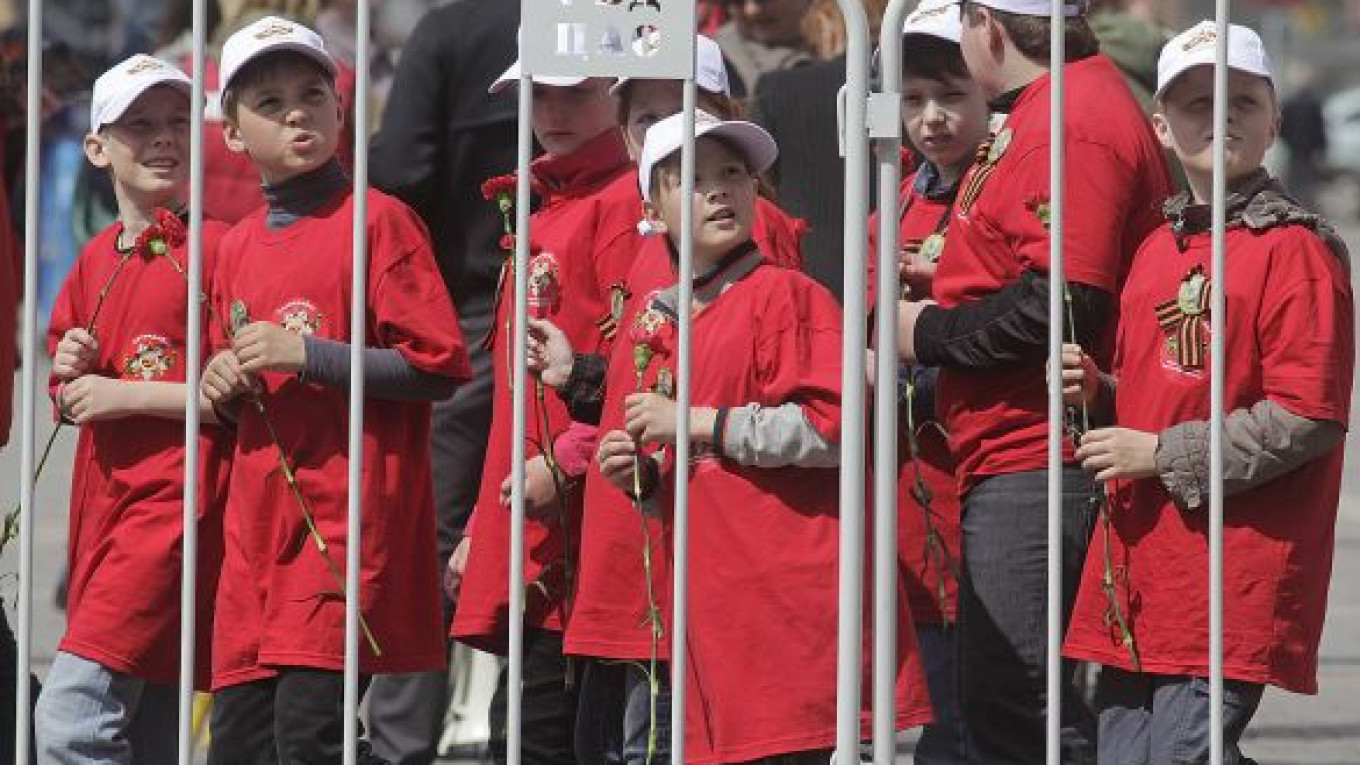City Hall on Thursday announced vague plans to clamp down on protests, while jailed opposition leaders urged some 200 people rallying for a fifth day in a row not to give up.
Opposition leaders Alexei Navalny and Sergei Udaltsov, who were sentenced Wednesday to 15 days in prison for disobeying the police, might be locked up for five years if investigators decide to charge them with inciting a riot and using violence against the police.
Investigators considering the criminal charges against the two questioned Navalny as a witness, not as a suspect, late Thursday, his lawyer told RIA-Novosti.
Udaltsov, meanwhile, signed a pledge not to disclose what he was questioned about, so it was unclear whether he was considered a suspect.
Navalny refused to sign the pledge, his lawyer said.
Earlier, through his lawyer, Udaltsov appealed to opposition supporters to continue their “mobile protests” — in which demonstrators move from location to location, often a few steps ahead of riot police — and to prepare for a new March of a Million rally on June 12, the Russia Day holiday.
Opposition leader Boris Nemtsov supported the idea of the June 12 rally, telling Interfax that it was “reasonable.”
About 200 protesters remained in the Chistiye Prudy neighborhood Thursday afternoon, and the riot police who had been disrupting their mobile protests for the past week were gone, opposition activist Danila Lindele on Twitter.
Solidarity opposition group co-leader Ilya Yashin and socialite Ksenia Sobchak visited the crowd to encourage them and discuss their next steps.
Meanwhile, Prime Minister Dmitry Medvedev, speaking at an Open Government meeting, broke his silence about the protests, curtly saying people who take to the streets should educate themselves on Russian law, Kommersant on its website.
Moscow’s City Hall also accused protesters of ignoring the law. Alexei Mayorov, head of City Hall’s regional security department, said that in approving future rally requests, the authorities would write out in more detail what would be allowed and forbidden.
“We will take into account that the event that was finalized with the opposition was not fulfilled by the organizers,” Mayorov said in reference to Sunday’s violence-tarnished March of a Million rally on Bolotnaya Ploshchad, according to RIA-Novosti.
He did not elaborate on the restrictions that would be inserted into City Hall authorizations for rallies.
But he said the rules for requesting permission to rally, which are defined by the law, would not be changed.
Still, those rules may change soon. Former President Dmitry Medvedev ordered the Cabinet in late April to introduce proposals for amending the law on mass gatherings by July. He did not say whether the rules should be eased or tightened.
But a few days before he issued the order, a group of State Duma deputies from United Russia and one deputy from A Just Russia submitted a bill to the lower chamber that would significantly increase fines for violating the law on mass gatherings, according to a text of the bill posted on the Duma's website.
The bill was in reaction to opposition protests held after Duma elections in December, but this week’s protests promise to become “a catalyst for approving this bill,” Communist Deputy Yury Afonin Kommersant.
The bill would increase the current fines of 300 rubles to 5,000 rubles ($10 to $165) for various offenses to 100,000 rubles and more. It also introduces compulsory labor of 200 hours as a punishment for so-called administrative offenses. Currently, compulsory labor is reserved for people convicted of more serious criminal offenses.
A Message from The Moscow Times:
Dear readers,
We are facing unprecedented challenges. Russia's Prosecutor General's Office has designated The Moscow Times as an "undesirable" organization, criminalizing our work and putting our staff at risk of prosecution. This follows our earlier unjust labeling as a "foreign agent."
These actions are direct attempts to silence independent journalism in Russia. The authorities claim our work "discredits the decisions of the Russian leadership." We see things differently: we strive to provide accurate, unbiased reporting on Russia.
We, the journalists of The Moscow Times, refuse to be silenced. But to continue our work, we need your help.
Your support, no matter how small, makes a world of difference. If you can, please support us monthly starting from just $2. It's quick to set up, and every contribution makes a significant impact.
By supporting The Moscow Times, you're defending open, independent journalism in the face of repression. Thank you for standing with us.
Remind me later.






